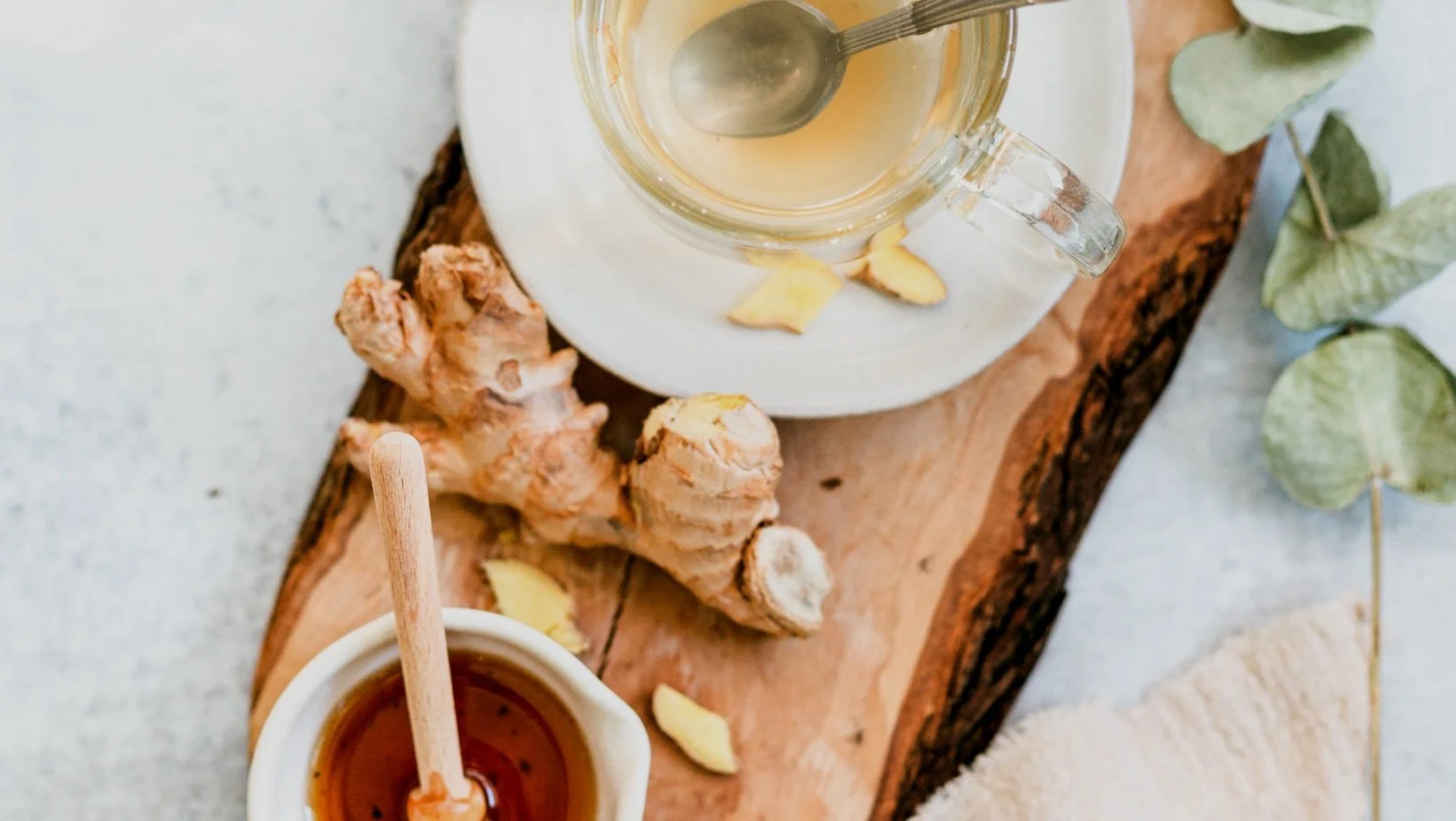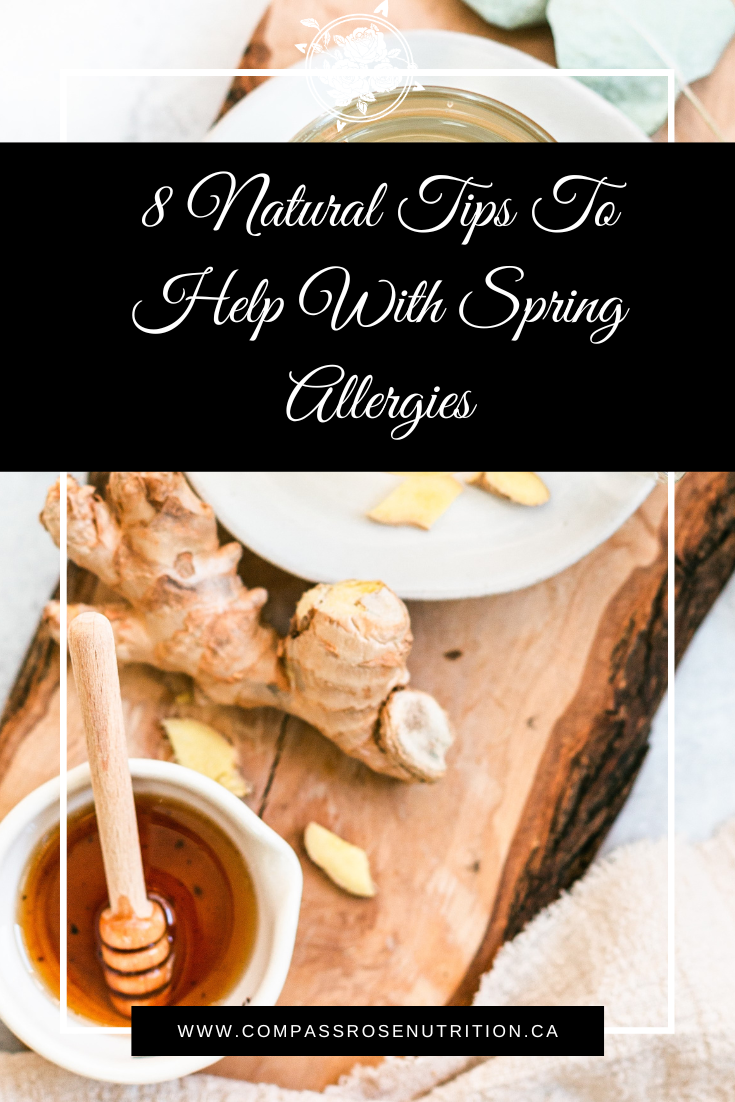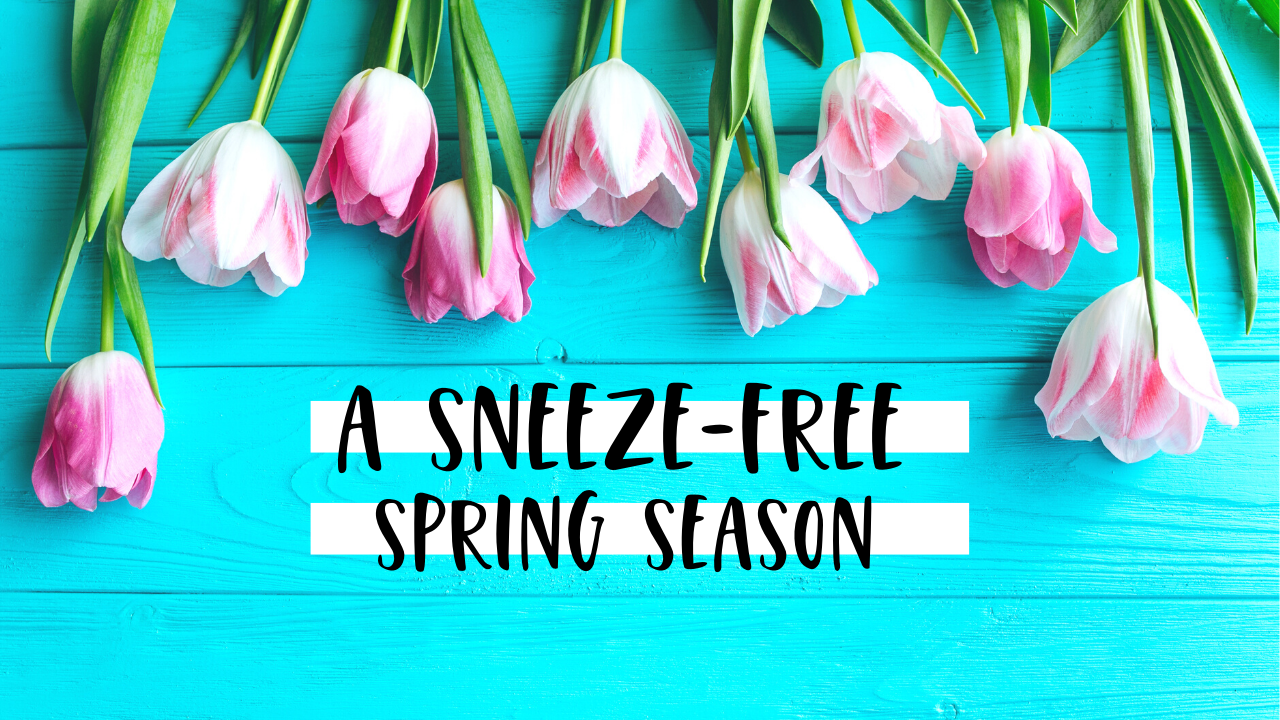If you suffer from Spring allergies, you are not alone. Every spring, millions of people suffer from seasonal allergies. Symptoms can include sneezing, itchy eyes, and a runny nose.
As the weather warms up, we want to be outside and enjoy the sunshine, but with pollen in the air you might just want to stay indoors.
If you go through this each year, it can be quite an annoyance and a common solution is to purchase over-the-counter medications, as they can effectively control these symptoms- however many of my clients prefer to find more natural solutions and remedies.
Thankfully, there are natural ways to ease your spring allergies that are effective and readily available.
Here’s my 8 tips to help you naturally manage your Spring allergies.
Air Purifiers
Air purifiers remove allergens that may trigger allergies from the air inside your home or office. These devices are beneficial if you live in an area prone to pollen or other airborne allergens. Some air purifiers also come equipped with special filters designed for allergic reactions; these filters trap and eliminate particles that trigger allergic reactions before they enter your home’s environment.
Herbal Remedies
Herbal remedies such as nettles, bromelain, quercetin, and stinging nettles have been used for ages to treat seasonal allergies naturally.
Nettles contain antihistamine properties which reduce inflammation and block histamines released by the body during an allergic reaction. How to use it? Make nettle leaf tea! You can mix it with other herbs, like peppermint leaf, for added benefits.
Bromelain is a powerful enzyme found in pineapple that helps reduce swelling and irritation of the nose and throat caused by allergens.
Quercetin is a natural antihistamine found in onions and apples; it helps reduce swelling caused by allergens and prevents histamines from being released into the body.
Finally, stinging nettle is an herb that has been used for centuries to treat allergies; its anti-inflammatory properties help reduce inflammation caused by allergens while providing relief from sneezing and runny noses associated with seasonal allergies.
Sinus Wash
Sinus irrigation involves rinsing your sinuses with a saline solution, which helps to remove mucous and airborne irritants that cause the symptoms of allergies, such as sneezing, congestion, and runny noses. When done correctly, it can help to relieve allergy symptoms and reduce sensitivity over time. Proper equipment is necessary for sinus washes but is readily available in most pharmacies or online. Daily sinus washes can give allergy sufferers much-needed relief when spring rolls around.
Washing bedding
In hot water at least once a week can reduce allergens that collect on sheets, blankets, and pillowcases. Investing in allergy-proof covers for mattresses and pillows is also an effective way to shield against airborne allergens that cause discomfort for allergy sufferers during the spring months.
Apple cider vinegar
It's a remedy as old as time, and used for many things- because it’s one that really works. Apple Cider Vinegar with The Mother can assist with a host of issues, and by helping to lower inflammation in the body, it can help to quell some spring allergy symptoms that are nagging at you.
Restore the good bacteria in your gut
The gut has been shown to have a link to your immunity. Allergies often come about when there's a lack of balance in your gut microbiome. It could be that your good gut bacteria population is dwindling and needs a boost. Choose probiotic-rich foods such as high-quality yogurt, kimchi, sauerkraut, or drink kefir or kombucha daily to get your probiotics on and restore order in your gut. Aside from eating probiotic-rich foods, find a high-quality probiotic supplement that can help you restore your microbiome.
Use local honey
When you buy honey that is made locally, the bees are taking pollen from the native plants in your area. That means your body starts adapting to those same allergens that have you sneeze when you see that thick blanket of pollen on your car. Make sure the honey is raw and unprocessed. You'll find local stuff at your farmer's market or health food store. Take a teaspoon of it twice a day, ideally a month before allergy season getting into full swing.
Seek out anti-inflammatory foods
Often, the answer lies in the foods we eat. Put more fresh herbs and spices into your meals, like ginger, for example, and you'll help soothe inflammation before it has you sneezing. Green tea is another effective option, plus it gives you plenty of antioxidants which boost your health all around.
Give a few of these tips a try this year, and hopefully you find some relief. Be sure to let me know in the comments if you have any success, or if you have any Spring Allergy tips of your own.
I have bonus guide for you, it’s called A Sneeze Free Spring Season - and you can download it inside my Nutrition and Wellness Library




